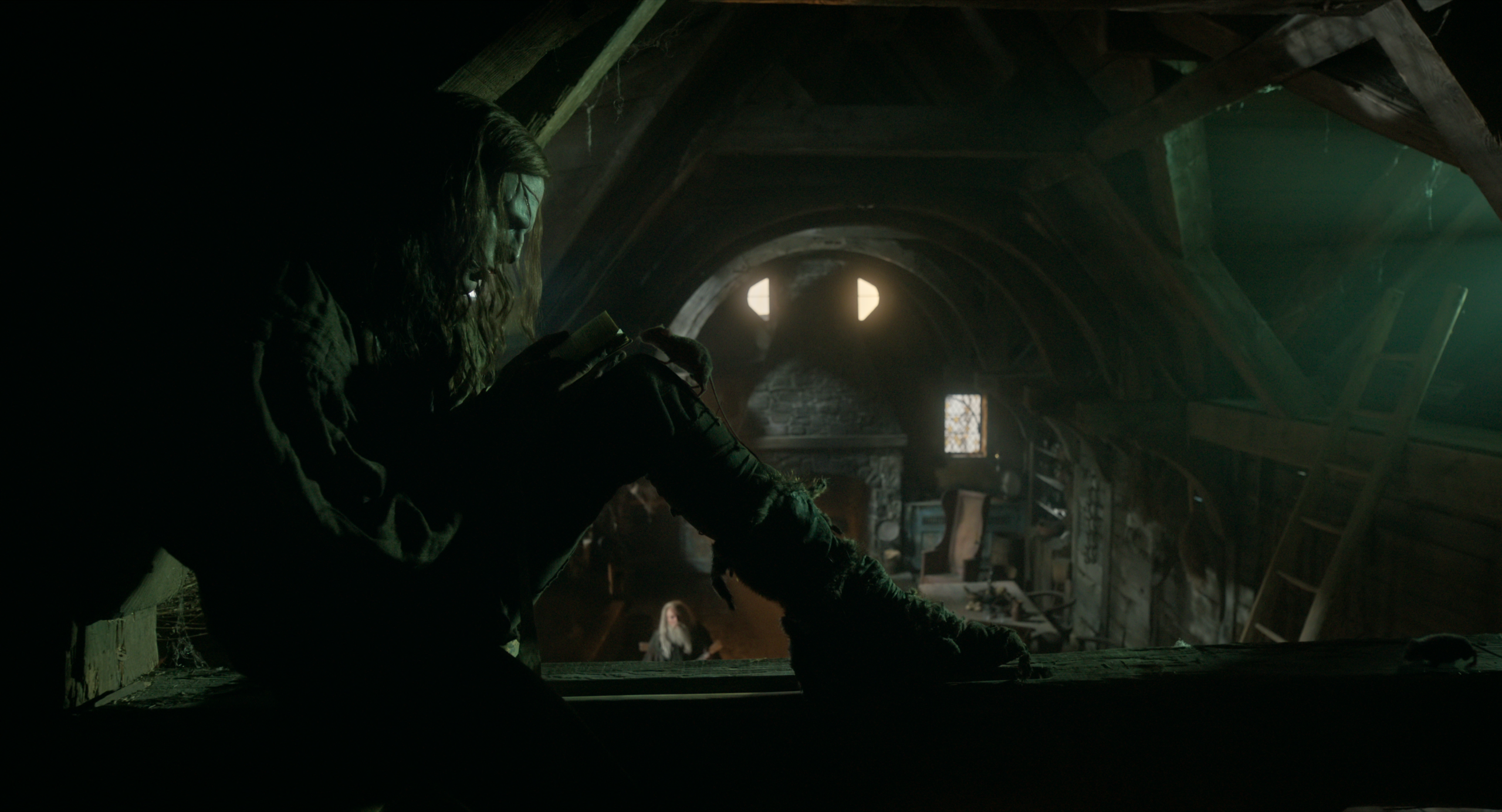Babygirl Film Review: Nicole Kidman and Harris Dickinson Unleash Repressed Desire in Halina Reijn’s Provocative New Drama

@A24
In the labyrinth of corporate ambition and social mores, director Halina Reijn’s latest film Babygirl dares to examine the murky spaces between power, identity, and forbidden desires. Starring Nicole Kidman as Romy—a polished, high-powered CEO—and Harris Dickinson as Samuel, her audacious young intern, A24‘s Babygirl is an incisive exploration of personal liberation and the cat-and-mouse game of an illicit affair.
From the outset, Babygirl defies conventional storytelling, choosing instead to delve into the internalised societal expectations that govern Romy’s every action. Romy is a woman defined by control, juggling a successful career, a long-term marriage, and motherhood. Yet, despite her apparent success, she harbors a haunting sense of unfulfilled desires, ones she’s never managed to satisfy in her conventional marriage with Jacob, played by Antonio Banderas.
Reijn, known for her deep, thoughtful approach to gender and sexuality, reveals the influence of a personal story in crafting Babygirl. A friend once confided in her about a 25-year marriage void of sexual fulfilment, a revelation that inspired the character of Romy. For Reijn, Babygirl explores what women often suppress—the courage to confront buried desires and pursue self-acceptance. In a world that demands women to suppress or hide their own needs, Reijn’s film extends an unapologetic invitation to acknowledge and reconcile these conflicting forces.

@A24
Central to Babygirl’s allure is the power dynamic that exists between Romy and Samuel, a dynamic that upends conventional roles of gender and authority. Samuel’s character feels almost otherworldly, emerging as a beacon for Romy’s unexplored emotions. His insight into her concealed frustrations, his relentless curiosity—these elements render him both an angel of salvation and an agent of temptation. It’s a role Harris Dickinson plays with striking sensitivity, embodying the strength and vulnerability needed to confront Romy’s closely guarded defences.
In this shifting landscape of seduction, Babygirl also playfully evokes the aesthetics of 90s erotic thrillers—films like *Basic Instinct* and *9½ Weeks*—but under Reijn’s direction, the genre’s male gaze is transformed. Romy’s liberation is hers to command, and in Reijn’s hands, every encounter becomes an opportunity to examine the fragile line between desire and transgression, humour and heartbreak. Kidman, in one of her most vulnerable performances, brings depth to Romy, a character who’s as much trapped by societal expectations as she is willing to dismantle them.

@A24
Despite its provocative premise, Babygirl finds humour in its subtext. Reijn doesn’t shy away from the complexities of Romy’s choices—each encounter with Samuel becomes a deeply personal exploration rather than a moral examination. The affair is less a means of self-destruction than it is a journey toward self-acceptance. Kidman, in interviews, describes her experience filming with Reijn as a fever dream of sorts, revealing an intense creative synergy that allowed both director and actress to unearth the nuances of Romy’s fractured self.
Reijn’s decision to shape Babygirl as a female-led narrative distinguishes the film as a modern-day drama that tackles age-old themes from a fresh perspective. This is no simple critique of gendered power struggles; it’s a complex portrayal of human vulnerability. As Reijn explains, Babygirl reflects a deeply human instinct to seek control while fearing vulnerability—a duality that Romy embodies to perfection.

@A24
What sets Babygirl apart from its genre predecessors is its commitment to portraying Romy and Samuel’s relationship as both transgressive and heartfelt. In a tender yet tumultuous connection, the boundaries of morality and authenticity blur. The illicit thrill of Romy’s choices resonates with audiences not as a mere romantic escapade but as a testament to the primal need for freedom, connection, and acceptance.
As Babygirl’s plot unfolds, Romy’s struggle to reconcile her disparate selves reveals broader cultural truths. In our modern era, where female sexual expression is both celebrated and scrutinized, Romy’s journey is a subtle rebellion. It’s a reminder of the complexities that define identity, and how love, in all its forms, can serve as a mirror to our most hidden selves.
Babygirl emerges as a daring, defiant piece of cinema that demands audiences confront their assumptions. Reijn’s unapologetic gaze creates a raw, fearless exploration of love, power, and identity—an experience that lingers long after the credits roll.
















